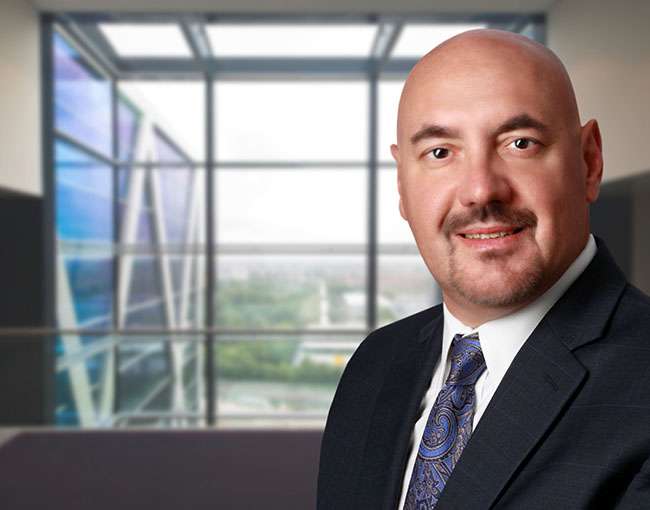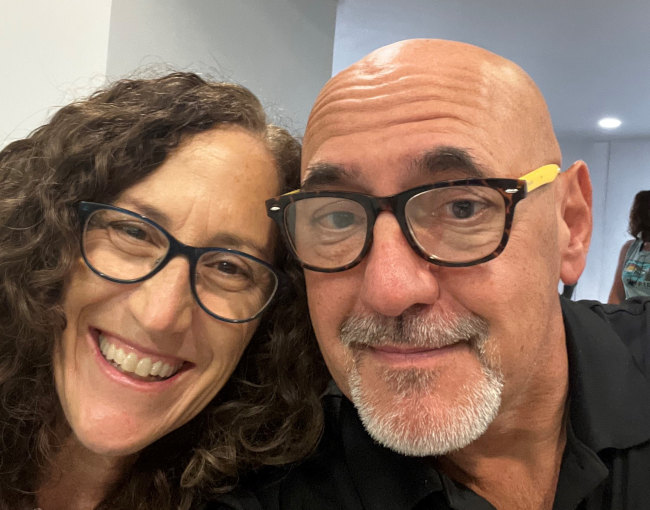Home > Case Studies > Reconnecting with Alumni John Howard, SVP Novant Health and COO Physician Network

Reconnecting with Alumni John Howard, SVP Novant Health and COO Physician Network

Evan and John
Thompson Coburn (TC): When were you at Thompson Coburn and with which group did you practice?
John Howard (JH): I practiced in Thompson Coburn’s Health Care group from 2014 through 2019, spending the latter part of my time with the firm as a co-chair of that group.
TC: What stands out about your time at Thompson Coburn?
JH: Thompson Coburn made a tremendous impact on me personally and professionally. Before practicing law as a Partner with Thompson Coburn, I had a long history with the firm as a client, when I served as general counsel for two health systems beginning in 2003. What stands out across both experiences, at TC and working with TC, is the genuine level of commitment and collaboration among the firm’s teams. TC’s attorneys offer an incredible sense of cooperation and a “how do we help” commitment related to client service. It was always apparent in the way we interacted with clients. For instance, when I needed help with a client from a different practice group, not only could I find that support immediately, but I had people who from the first moment were “all in.” Thompson Coburn delivers a truly cooperative experience across their legal disciplines. Regardless of the client issues at hand, the lawyers would always find the time for practical and innovative solutions. In my experience, the lawyers at Thompson Coburn are not only outstanding practitioners, but they are great people who do so much more than just get the legal job done. They truly understand what clients need and find ways to serve clients in apparent and purposefully meaningful ways.
TC: Is there anyone from your time at Thompson Coburn who was a mentor to you (informally or formally)? If so, how did they positively impact your career approach?
JH: There are so many great people at the firm, but I really want to call out Evan Goldfarb, who was my co-chair of the Health Care group and is a member of the firm’s Management and Executive Committees. Evan and I have been friends and colleagues for some time, starting to work together in a client/lawyer relationship in the early 2000s. Early on it was apparent that Evan was an incredibly smart and thoughtful lawyer, but what I later learned, when practicing at Thompson Coburn, was how well she manages both the major projects and the little things that matter. She is always available and engaged, and it is difficult to describe the extent of her positive impact on me professionally. She demonstrates how to work collectively in a group, how to mentor and train young associates and partners, and how to see around the corners for clients, always presenting materials and ideas in a way that demonstrates the depth and quality of what we were bringing. Her commitment to knowing what the client needs demonstrated value that transcends the rate structure. She has an unmistakable skill in nurturing the feeling of value for clients.
TC: Tell us about your current role.
JH: I am not practicing law for the first time since I graduated from law school. I am currently the COO of the Physician Network and a Senior Vice President at Novant Health in North Carolina. We are a large health care system with about $7.5 billion in annual revenue, and our group includes more than 3400 providers who had 6.2 million patient encounters in 2022. I joined Novant in 2019, and I am also responsible for the system’s value-based care delivery efforts.
TC: How did your time at Thompson Coburn prepare you for your current work?
JH: Most of my legal career was spent as in-house counsel at organizations, and so my view was sometimes narrowed to my direct role. Working at Thompson Coburn provided an incredible opportunity to work with new people and different organizations. This diversity of clients quickly gave me visibility into a full range of challenges and how people worked through issues in the health care industry. Afterall, being a transactional and regulatory lawyer is centered on working through complex problems, and understanding these problems is the first step in addressing concerns. When stepping into my current role, I drew upon my work with Thompson Coburn’s clients that provided a deep understanding of challenges across the health care marketplace. This could not have been timelier as I quickly faced the challenges of helping to manage a health care business during, before, and after the onset of a pandemic. This called for a broad perspective and nuanced strategies for running a health care organization under global crisis circumstances. My experience advising Thompson Coburn’s wonderfully diverse clients afforded me the ability to think through how other organizations handled themselves in times of uncertainty. This background made a huge difference in resetting perspectives and identifying what needed to be in focus so that I could find solutions.
TC: If you were not a lawyer, what would you be?
JH: Interestingly, I am a “second-career” lawyer. I was a teacher before law school, teaching college-level English and philosophy classes. So, if I were not a lawyer today, I would likely go back to the college classroom but remain uncertain about what I would teach. I still guest lecture at local universities on what is happening in health care. I like the dynamic of teaching and the energy and new perspectives of young adult learners.
TC: What advice would you give younger lawyers as they build their practice and careers?
JH: When I was at Thompson Coburn, I had the opportunity to serve on the associate committee. Great work and great team. This ability to work with younger attorneys was paramount because they are the future lifeblood of the firm and retaining good, well-trained lawyers is critical. Generally speaking, young lawyers progress at law firms in a fairly linear and predictable manner. And so, I give younger lawyers this advice: be prepared for what you didn’t expect and make sure you are looking at what those opportunities could mean for your career. Be on the lookout for new and different opportunities in areas you didn’t think would be there for you.
Let me explain why I give this particular advice. When I started out as a lawyer, I worked in the litigation department at a big, brand-named firm. But early on in my career, I had an opportunity to do some health care legal work with the then-St. John’s Mercy Health Care in St Louis. Shortly after beginning to take on health care work, I was offered a rare in-house role overseeing legal services, a job that I only had marginal knowledge about at the time. But I took the chance, and it was an incredible learning experience. By being opportunistic, I was forced to think through new problems and situations. And it also turned out that the CFO at the time became a great mentor to me. He took the time to build my knowledge of the health care business, allowing me over time to take on business development and growth strategies. It was not all planned; in many ways, it was surely serendipity and luck. But I believe that if you don’t look for (and through) the open windows, they will close. And sometimes, just sometimes, those windows open to a field of interesting opportunities.
I leave this conversation with something I recently heard that seems to be sage advice: “We often question if there is light at the end of the tunnel without realizing that the issue is not whether the light is there but that, in fact, the problem may be that the tunnel isn’t always straight.”
